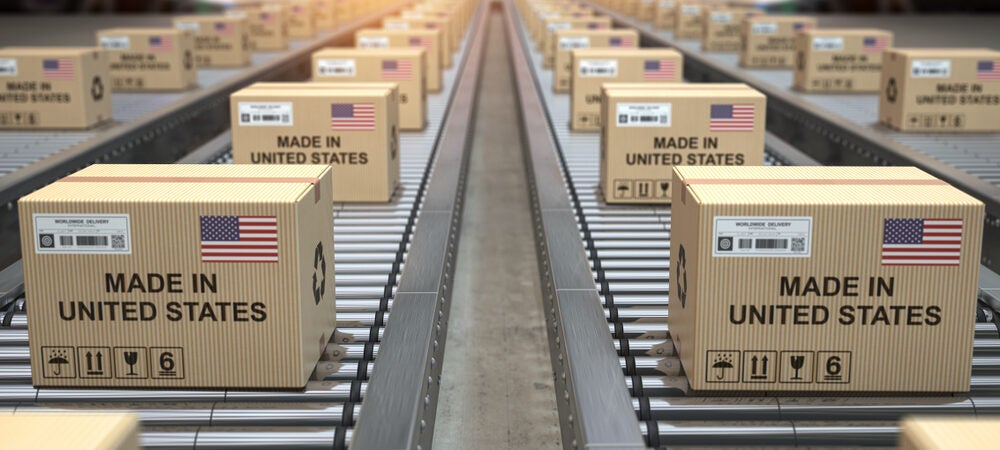The Biden administration has revised “Buy American” rules, consistent with the president’s 2021 Made in America order, to increase the share of American-made content in domestic products and construction material. It amends the rules implementing the Buy American Act of 1933 in two ways. It increases the domestic content required for a product to be considered American-made and establishes a framework for enhanced price preferences for critical products or products made up of critical components. This post looks at the key elements of the new rules, as well as the issues that they do not address.
On March 7, 2022, the administration issued amendments of the rules that implement the Buy American Act. But it deferred their implementation for more than seven months – until October 25, 2022 (in contrast to the typical implementation of rules 30 days after publication). The delayed implementation is intended to allow industry time to plan for the new domestic content thresholds and to provide workforce training on a new fallback threshold.
Domestic Content Threshold: The rule increases the value of U.S.-made components that must be in a product for it to qualify as “domestic”. It raises the domestic content threshold from 55 percent in three stages: to 60 percent in October 2022, to 65 percent in 2024, and then to 75 percent in 2029.
Fallback Threshold: The rule creates a fallback threshold that allows agencies to continue to apply the current 55 percent domestic content threshold – for one year after the threshold reaches 75 percent. Agencies may apply this fallback threshold when they have determined that there are no products or construction materials that meet the higher domestic content threshold or such products are of unreasonable cost. They may not apply the fallback threshold to products or construction materials that consist wholly or predominantly of iron or steel or that are commercially available off-the-shelf items. One of the aims of the fallback threshold is to “avoid unintentionally raising the foreign content of Federal purchases through increased use of waivers while domestic suppliers adjust” to the increases in domestic content.
Enhanced Price Preferences for Critical Products and Critical Components: The new rule also provides for a framework through which higher price preferences will be applied to products and construction material that are deemed to be critical or made up of critical components. The list of critical items and critical components, along with the associated enhanced price preference(s), will be established in a subsequent rulemaking.
The enhanced price preferences are intended to strengthen domestic supply chains. According to a White House fact sheet on critical supply chains: “By allowing the Federal government to pay an additional premium for critical domestic-made products and components essential to the Administration’s supply chain resiliency strategy, the new rule will create a steady source of demand that will help catalyze domestic production and bolster thin supply chains.” These price preferences will “build off” the administration’s industrial base reviews. In February 2022, seven Cabinet agencies published reports that identified key weaknesses in critical supply chains and proposed strategies to address the weaknesses.
Post-award Reporting: The final rule did not include a provision from the proposed rule that would have required post-award reporting on the specific amount of domestic content in critical end products, construction material, or components receiving the enhanced price preference. This requirement will be deferred to the rulemaking that establishes the definitive list of critical products.
Issues Not Addressed: In issuing the new rule, the Federal Acquisition Council did not address several issues on which it had sought public comments when it issued the proposed rule. They included alternatives for the “component test” (that measures the domestic content of a product by the value of its components), whether critical services should be accorded price preferences, the impact of the substantial transformation test (used to determine whether a product is eligible for a waiver under the Trade Agreements Act of 1979), and the current exemption of commercial information technology from the Buy American Act.
Jean Heilman Grier is the Principal and Manager, Trade Practice, at Djaghe, LLC., where she advises and provides assistance to businesses, governments, international organizations and trade groups in the United States, Europe, Asia and Latin America on a wide variety of international trade and procurement issues.
To read the full commentary from Perspectives on Trade, please click here.

